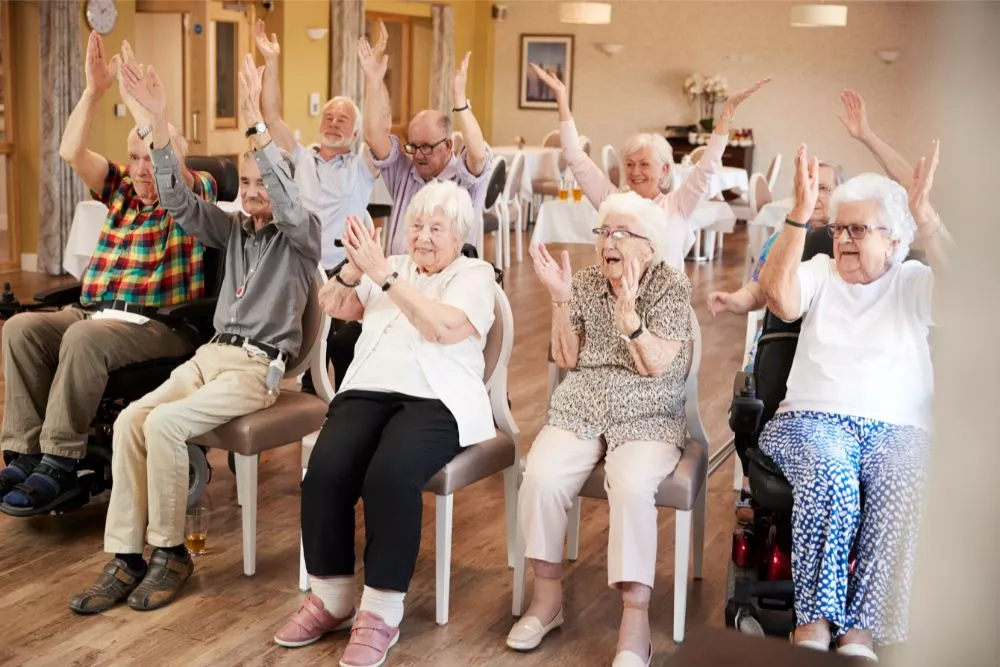Compare Memory Care solutions for families seeking compassionate support.
Compare Memory Care solutions for families seeking compassionate support.
Blog Article
Just How Aided Living Facilities Enhance Top Quality of Life for Those With Mental deterioration
Helped living centers play a critical role in enhancing the lifestyle for people with dementia by executing customized treatment strategies that provide to their unique demands. These environments incorporate organized tasks with emotional assistance, promoting a sense of area while making sure security and freedom. The assimilation of engaging programs and family participation further improves the citizens' experience. Yet, the intricacies of mental deterioration treatment proceed to progress, triggering a closer evaluation of how these facilities adapt and introduce to meet the difficulties dealt with by residents and their family members. What ramifications does this have for future care versions?
Personalized Care Plans
(Dementia Care Charlotte)In most cases, individuals with mental deterioration call for tailored support that addresses their special demands and preferences. Individualized care plans are necessary in assisted living settings, as they make sure that each resident receives suitable interest and services. These plans are created collaboratively, entailing medical care professionals, caregivers, and member of the family to develop an extensive summary of the individual's clinical history, cognitive capacities, and individual rate of interests.
A well-structured customized treatment strategy typically consists of certain objectives associated to health monitoring, daily activities, and social interaction. It represents the individual's cognitive decline while promoting self-reliance and self-respect. Normal analyses and updates to the care strategy are important, as they enable modifications based on the citizen's developing problem and preferences.
Secret parts of these plans commonly involve medication management, behavioral assistance techniques, and nutritional guidelines customized to the person's needs (Assisted Living). By focusing on customized treatment, assisted living facilities can cultivate a supportive environment that enhances the top quality of life for people with dementia, ultimately adding to their general health and happiness. This personalized approach respects the uniqueness of each homeowner, ensuring they get the caring care they require

Involving Tasks and Programs
Involving residents in meaningful tasks and programs is crucial for enhancing the lifestyle for individuals with mental deterioration. These tasks not just give satisfaction yet additionally promote cognitive function and promote social communication, which can alleviate feelings of isolation typically experienced by homeowners.

Additionally, tailored programs are vital in ensuring that each local's one-of-a-kind preferences and capacities are acknowledged. This customized technique urges engagement, improves self-esteem, and provides a feeling of success.
Moreover, regular evaluations of locals' passions can assist staff change and adapt activities to better fit developing requirements. By focusing on engaging tasks and programs, aided living facilities can considerably enhance the total experience and psychological health of people coping with mental deterioration.
Safe and Supportive Setting
Creating a safe and encouraging environment is important for people with mental deterioration, as it directly impacts their well-being and lifestyle. Aided living centers are designed with particular attributes that advertise security while cultivating a complacency and comfort. These environments prioritize ease of access, with layouts that decrease confusion and encourage freedom, enabling homeowners to navigate their surroundings a lot more easily.
Precaution, such as safe and secure entries and exits, avoid straying and unauthorized access, which are vital factors to consider for people with dementia (Assisted Living). Team member are educated to acknowledge the unique demands of residents, offering tailored assistance and supervision to ensure their safety. Furthermore, the consolidation of relaxing colors and familiar things can help in reducing anxiousness and disorientation, creating an extra calming atmosphere.
In enhancement to physical security, psychological assistance is vital. Facilities usually utilize personnel that are not only skilled in caregiving but also trained in compassion and interaction, promoting trust fund and connection with locals. This holistic approach adds to a caring environment where people feel valued and comprehended, inevitably enhancing their overall high quality of life.
Social Communication and Community
A helpful setting not just focuses on safety but additionally promotes opportunities for social interaction and area engagement, which are vital for people with mental deterioration. In assisted living centers, structured activities and communal rooms urge residents to link with one an additional, reducing feelings of seclusion frequently experienced by those with cognitive problems.
Social interaction plays a significant function in improving emotional wellness and cognitive feature (Assisted Living). Involving with peers in group image source tasks such as games, arts and crafts, or workout not only boosts cognitive abilities but likewise nurtures a feeling of belonging. Facilities frequently arrange events that advertise socialization, enabling citizens to construct relationships and share experiences, which can be particularly helpful for those with dementia
Moreover, a dynamic neighborhood atmosphere can improve the overall high quality of life for homeowners. Staff participants are educated to help with communications and assistance locals in developing meaningful links.
Family Members Participation and Support
Household participation is important in supporting individuals with mental deterioration in assisted living environments. Actively involving relative not just provides psychological comfort to citizens however also fosters a sense of belonging and connection in their lives. When family members join treatment planning and day-to-day tasks, they contribute useful insights concerning the person's choices, background, and requires, which can enhance personalized treatment.
Furthermore, normal family members gos to can significantly improve the emotional health of locals, minimizing feelings of isolation and anxiety. Household members can also help in keeping cognitive feature by engaging their enjoyed ones in acquainted conversations and activities. This communication reinforces individuality and aids homeowners feel valued and comprehended.

Final Thought
To conclude, aided living facilities considerably improve the high quality of life for people with dementia via customized care strategies, involving activities, and a risk-free setting. These aspects foster cognitive stimulation, psychological well-being, and a feeling of freedom. Regular social interactions and solid family members participation contribute to purposeful links and emotional assistance. Collectively, these factors produce an alternative approach to care that addresses the special demands of people with mental deterioration, advertising total wellness and self-respect.
Report this page